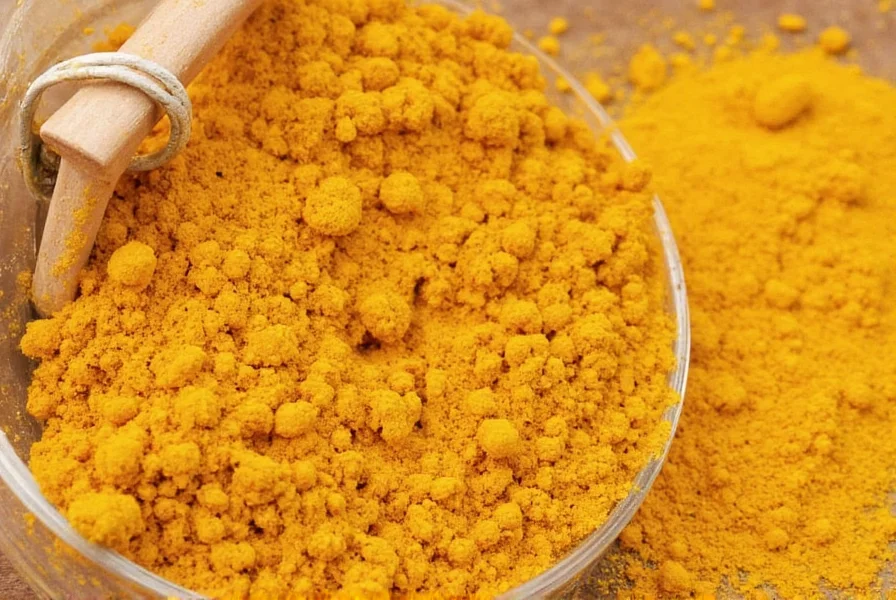As a widely used spice and supplement, turmeric has gained popularity for its potential health benefits, primarily due to its active compound curcumin. While generally considered safe when used as a culinary spice, concentrated turmeric supplements require more careful consideration regarding potential side effects and safety concerns.
Understanding Turmeric and Its Active Components
Turmeric (Curcuma longa) is a bright yellow spice commonly used in Asian cuisine and traditional medicine systems. The primary bioactive compound in turmeric is curcumin, which constitutes about 2-8% of most turmeric preparations. When discussing turmeric side effects, it's important to distinguish between:
- Culinary turmeric - Used in cooking at typical dietary amounts (usually 1-3 grams daily)
- Turmeric supplements - Concentrated forms providing much higher doses (often 500-2,000 mg daily)
- Curcumin extracts - Highly concentrated forms with even higher potency
The side effect profile differs significantly between these forms, with supplements carrying greater potential for adverse reactions due to their concentrated nature.

Common Turmeric Side Effects
Most people tolerate turmeric well when consumed in food amounts. However, supplement users may experience mild side effects, particularly at higher doses:
| Common Side Effect | Frequency | Typical Dose Trigger |
|---|---|---|
| Stomach upset | Very common | 500mg+ |
| Nausea | Common | 1,000mg+ |
| Diarrhea | Common | 1,000mg+ |
| Dizziness | Occasional | 1,500mg+ |
| Headache | Occasional | 1,500mg+ |
These digestive side effects of turmeric typically occur at supplement doses exceeding 1,000 mg daily. Taking turmeric with food can often minimize these gastrointestinal issues.
Serious Safety Concerns and Rare Side Effects
While uncommon, certain serious side effects have been reported with high-dose turmeric supplementation or in sensitive individuals:
Increased Bleeding Risk
Turmeric may slow blood clotting, potentially increasing the risk of bleeding. This is particularly relevant for:
- People taking blood thinners like warfarin, clopidogrel, or aspirin
- Those with bleeding disorders
- Individuals scheduled for surgery (should discontinue 2 weeks prior)
Gallbladder Complications
Turmeric may increase gallbladder contractions, which can worsen symptoms for people with:
- Gallstones
- Bile duct obstruction
- History of gallbladder disease
Drug Interactions
Turmeric supplements can interact with several medications, including:
- Blood thinners - May increase bleeding risk
- Diabetes medications - May enhance blood sugar lowering effects
- Antacids - May reduce effectiveness of some antacids
- Chemotherapy drugs - Potential interactions require medical supervision
Dosage Considerations for Safe Use
Understanding appropriate turmeric dosage is crucial for minimizing side effects:
- Food amounts: 1-3 grams daily is generally safe for culinary use
- Supplemental doses: Most studies use 500-2,000 mg of turmeric extract daily
- Curcumin specifically: Effective doses typically range from 80-500 mg daily
The World Health Organization suggests an acceptable daily intake of 0-3 mg per kilogram of body weight for curcumin. For a 150-pound person, this translates to approximately 200 mg of curcumin daily.
Long-term safety data is limited, but most experts consider daily supplementation safe for up to 8-12 weeks. Extended use beyond this period should be discussed with a healthcare provider, especially for those with pre-existing health conditions.

Who Should Avoid Turmeric Supplements?
Certain populations should exercise caution or avoid turmeric supplements altogether:
- Pregnant or breastfeeding women - Safety not established for supplement doses
- People with iron deficiency - High doses may interfere with iron absorption
- Those with hormone-sensitive conditions - Turmeric may have estrogenic effects
- Individuals with kidney stones - Turmeric contains oxalates which may contribute to stone formation
- People scheduled for surgery - Should discontinue use at least 2 weeks beforehand
Recognizing Turmeric Allergy Symptoms
True allergic reactions to turmeric are rare but possible. Symptoms may include:
- Skin rash or hives
- Itching, particularly around the mouth
- Digestive distress beyond typical mild upset
- In severe cases: swelling, difficulty breathing
If you experience signs of an allergic reaction after consuming turmeric, discontinue use immediately and seek medical attention for severe symptoms.
Scientific Evidence on Turmeric Safety
Multiple clinical studies have evaluated turmeric safety:
- A 2017 review in Food and Chemical Toxicology concluded that curcumin is safe at doses up to 8,000 mg daily, though gastrointestinal issues became more common above 1,000 mg
- Research published in Phytotherapy Research found that doses of 500-1,500 mg of curcumin daily were well-tolerated in most participants
- Studies suggest that combining curcumin with piperine (from black pepper) increases absorption but may also increase the likelihood of digestive side effects
It's important to note that most safety studies have examined relatively short-term use (8-12 weeks). Long-term safety data for daily supplementation beyond this period remains limited.
Minimizing Turmeric Side Effects
If you experience mild side effects from turmeric supplements, consider these strategies:
- Start with a lower dose and gradually increase
- Take with food to reduce digestive upset
- Choose formulations with enhanced absorption that allow lower dosing
- Split your daily dose into multiple smaller servings
- Stay well-hydrated throughout the day
- Consider taking periodic breaks from supplementation
When to Consult a Healthcare Provider
Seek medical advice before using turmeric supplements if you:
- Take prescription medications regularly
- Have a chronic medical condition
- Are scheduled for surgery within the next few weeks
- Experience persistent or severe side effects
- Are pregnant or breastfeeding
Always inform your healthcare provider about any supplements you're taking, as turmeric may interact with certain treatments or affect diagnostic tests.
Final Considerations on Turmeric Safety
Turmeric remains a valuable addition to the diet for most people when used appropriately. The key to avoiding turmeric supplement side effects lies in understanding your personal health status, using appropriate doses, and being aware of potential interactions. While culinary use presents minimal risk, concentrated supplements require more careful consideration.
As with any supplement, more is not necessarily better. Staying within evidence-based dosage ranges and paying attention to your body's responses will help maximize potential benefits while minimizing the risk of adverse effects.
Frequently Asked Questions
Can turmeric cause liver damage?
While rare, there have been isolated case reports of liver issues associated with high-dose turmeric supplements, particularly in individuals with pre-existing liver conditions. Most studies show turmeric may actually support liver health at standard doses. If you have liver disease, consult your doctor before taking turmeric supplements.
How much turmeric is too much per day?
For culinary use, up to 3 grams (about 1 teaspoon) daily is generally safe. For supplements, most research uses 500-2,000 mg of turmeric extract daily. Doses exceeding 8,000 mg have been studied but commonly cause digestive side effects. The World Health Organization recommends no more than 3 mg of curcumin per kilogram of body weight daily for supplemental use.
Does turmeric interact with blood pressure medication?
Turmeric may have mild blood pressure-lowering effects. When combined with blood pressure medications, it could potentially cause blood pressure to drop too low. If you take hypertension medication, monitor your blood pressure regularly when starting turmeric supplements and consult your doctor about appropriate monitoring.
Can turmeric cause acid reflux?
Yes, turmeric supplements can trigger or worsen acid reflux in some individuals, particularly at higher doses. This is one of the more common digestive side effects of turmeric. Taking turmeric with food and starting with lower doses may help minimize this effect. People with GERD or frequent heartburn should use caution with turmeric supplements.
Is it safe to take turmeric every day long-term?
Current research supports the safety of daily turmeric supplementation for 8-12 weeks. Data on safety beyond this period is limited. For long-term daily use, most experts recommend periodic breaks (such as 2 weeks off after 8-12 weeks of use) and consulting with a healthcare provider, especially if you have underlying health conditions or take medications.










 浙公网安备
33010002000092号
浙公网安备
33010002000092号 浙B2-20120091-4
浙B2-20120091-4